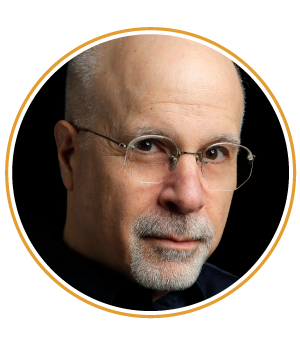 Are we really still referring to God in the masculine?
Are we really still referring to God in the masculine?
This week’s Torah portion Ha’azinu makes clear that YHWH was understood as dual gendered.
Ha’azinu opens with Moses declaring “Let the earth hear the words of my mouth!” And listen to what Moses is saying! God “convulsed in labor for you” (Deuteronomy 32:18), “gave birth to you” (32:18), and “suckled” you (32:13).
And lest we think that God did this in partnership with a goddess, consort, or queen, Moses tells us: God led the people badad — utterly and completely alone (32:12).
YHWH’s male- and femaleness is a thinly-veiled theme which runs throughout the Five Books of Moses, as I explore in my book The Name: The History of the Dual-Gendered Hebrew Name for God.
It’s surprising, but it shouldn’t be.
We give voice to this ancient belief every Friday night at our Kabbalat Shabbat service when we welcome the female aspect of God as envisioned by our kabbalists: the Shekhinah.
And just before we welcome Her, we sing Psalm 29 — much older than the kabbalah, considered “probably among the earliest psalms of the Psalter,” a window, therefore, into YHWH’s most ancient mythology. In Psalm 29, YHWH acts as both god and goddess: In verse 8 YHWH convulses (yachil) the desert (as in an earthquake, traditionally a male god role); while in verse 9 YHWH causes the female deer to convulse (y’cholayl; as in labor, traditionally a female fertility goddess role).
Psalm 29 is a paean to dual-gendered divinity.
Now, back to this week’s Torah portion:
In Ha’azinu, Moses declares “it is YHWH’s Name which I proclaim” (Deuteronomy 32:3). But what did Moses proclaim?
YHWH was ruled unpronounceable during the Second Temple period, after which it became a source of great speculation. Did Moses pronounce it Jehovah, as some claimed? Or perhaps Yahweh, as others guessed? Ha’azinu does not answer the question, but it offers some hints.
Our sages of blessed memory taught that whenever we find redundant language (lashon yeterah) in the Torah it is there to hint at a deeper meaning. In Ha’azinu we find redundant language at 32:29 in God’s double declaration Ani, Ani (“I, I,”) — more suggestive of a deity of double rather than singular nature.
And then, of course, there’s the odd way that Ha’azinu is traditionally written out in a Torah scroll — its distinctive “orthography” (artistic conventions scribes follow when they put feather to parchment, according to the guidebook of their scribal arts known as the masorah).
Here are the rules for Ha’azinu: In writing out this Torah portion, a scribe forms one oversized, majuscule, or rabbati letter in a word found at 32:6; one extra, superfluous, or yathir letter in a word found at 32:13; and one undersized, miniscule, or ze’ira letter in a word found at 32:18.
The oversized letter is ה (hay). The extra letter is ו (vov). And the undersized letter is י (yod). Hay (ה), vov (ו), and yod (י) — the three unique letters of God’s Name YHWH, but in a different order.
Much later, the kabbalists (who ritually reordered the letters YHWH in pursuit of mystical experience, a practice called tzeruf ha’otiyot) sought to obscure the scribal attention on these letters, finding them too revelatory. But, as shared in a previous commentary, by the sixteenth century the secret was already out. And that is, that when the order of the letters is reversed, YHWH is revealed to be a cryptogram. Arranged in their proper order as HWHY the letters can be read as approximations of the Hebrew pronouns for “He” (Hu) and “She” (Hi).
For hundreds of years, there have been scholars claiming that YHWH signifies a dual-gendered God. The claim draws on hints in the Torah — some quite broad — which are found not just in a few places but, as I share in my book The Name, everywhere.
About this, for one reason or another, we have been unable to hear what the Torah has to say.
“There are no gods with Me!” says God (32:39). God is male, God is female, God is Father, God is Mother. Quaking earth and birthing hinds are not beholden to separate powers, but to one. Everyone and everything derive from the same singular source.
This was Judaism’s great chiddush, its novel understanding, its gift to the world — that God is both male and female… and that God is One.
Ha’azinu! as Moses says. Give ear!

The views and opinions expressed in this article are those of the author(s) and do not necessarily reflect the official policy or position of the World Union for Progressive Judaism (WUPJ).
